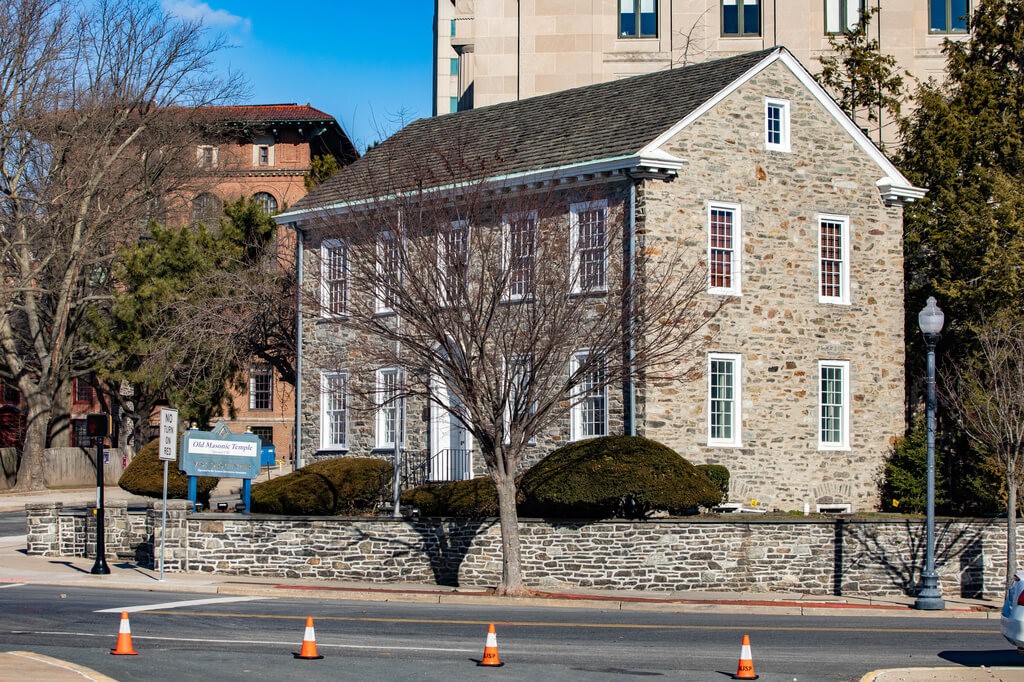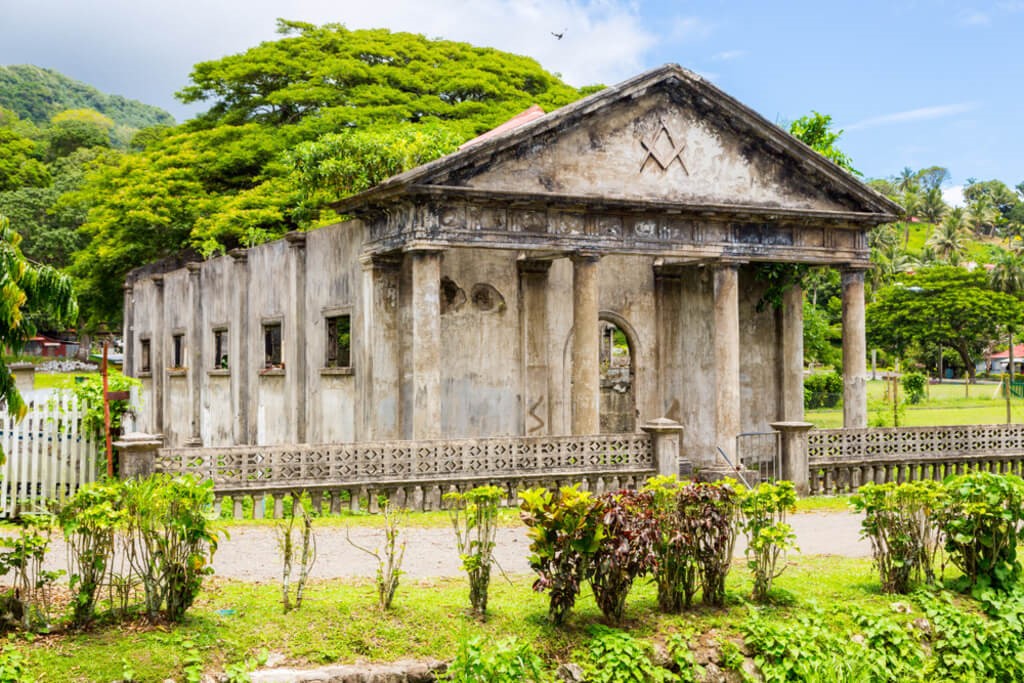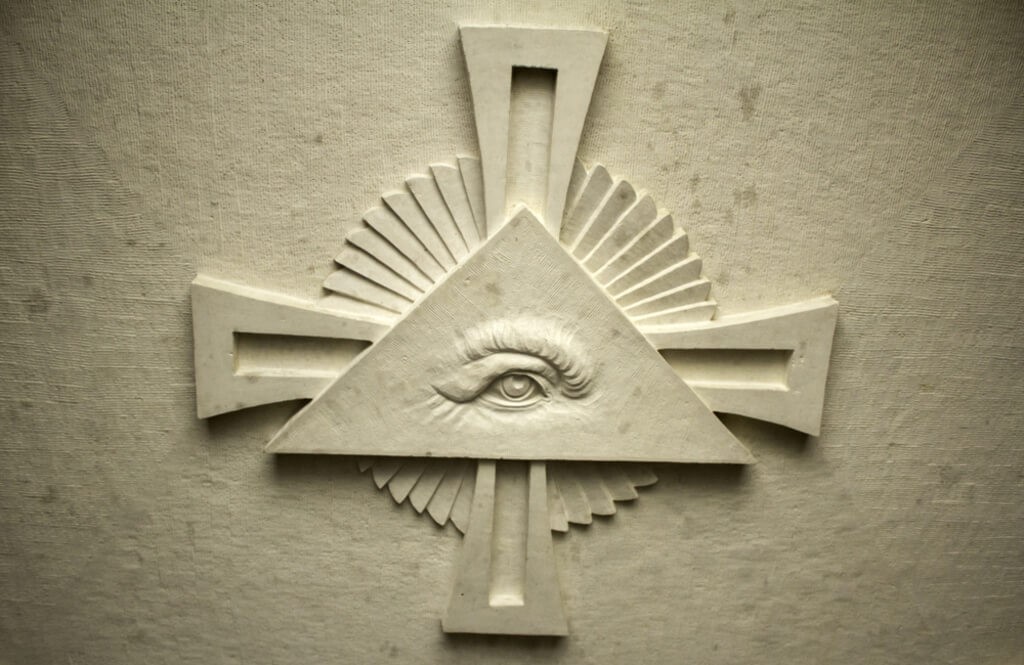Is Freemasonry a Religion? Unveiling the Truth Behind the Square and Compasses
For centuries, the enigmatic world of Freemasonry has captured the public imagination. Veiled in symbolism and steeped in history, it is often misunderstood, with its true purpose debated by outsiders and even some initiates. The most persistent and fundamental question that arises is a simple one: is Freemasonry a religion? This question sparks intense debate and is the source of significant confusion, leading to speculation that ranges from the curious to the conspiratorial. The answer, however, is both straightforward and nuanced, requiring a deeper look into the Craft’s core principles.
To be clear, Freemasonry itself emphatically states that it is not a religion. It is a fraternal organization, a system of morality, and a society dedicated to self-improvement and charitable works. Yet, it is undeniably religious in character. This distinction is crucial. Freemasonry does not seek to save souls or offer a path to an afterlife. Instead, it requires its members to profess a belief in a Supreme Being, a foundational principle that underpins its entire philosophical structure. This prerequisite is non-negotiable and forms the very bedrock of what do Free Masons believe in.
This requirement of faith is precisely where much of the confusion begins. How can an organization demand belief in God but not be a religion? The answer lies in its unique approach to spirituality. Freemasonry provides a framework for moral and ethical living that is designed to supplement, not supplant, a member’s own religious faith. It brings men of different creeds together, united by a shared belief in a higher power and a commitment to brotherhood, truth, and charity, without imposing a specific theological doctrine upon them.

What Defines a Religion?
To properly analyze Freemasonry, we must first establish a working definition of religion. Generally, a religion includes several key components. It typically possesses a specific set of dogmas or unchallengeable beliefs about the nature of God and reality. It offers a path to salvation or enlightenment, explaining humanity’s ultimate purpose and destiny.
Religions have their own unique scriptures, specific deities, and a clergy or priesthood dedicated to interpreting sacred texts and leading worship. They also have houses of worship, such as churches, mosques, or temples, where followers congregate for specific religious services. A religion provides a comprehensive theological system that answers the big questions of existence from a particular doctrinal viewpoint. It is against this established benchmark that we can fairly measure the practices and principles of Freemasonry.

Why Do People Think Freemasonry is a Religion?
The perception of Freemasonry as a religion stems from several of its most visible characteristics. To the uninitiated, the use of rituals, the presence of an altar with a sacred book, and the frequent mention of a Supreme Being look very much like the components of a religious system. These elements, however, have different meanings and functions within the Masonic context than they do in a traditional faith.

Does Freemasonry Have Sacred Texts?
Yes and no. In any Masonic lodge, a central feature is the altar, upon which rests a Volume of the Sacred Law (VSL). For lodges in the English-speaking world, this is typically the King James Bible. However, in a lodge with members of diverse faiths, other texts like the Quran, the Torah, or the Vedas may be present as well.
The key difference is how this book is used. In a religion, a sacred text is the source of dogma and divine revelation. In Freemasonry, the VSL is a symbol of God’s revealed will and a source of universal moral guidance. It is used to obligate a Mason to his promises, reminding him of his duty to a higher power, but the specific contents are not debated or taught as religious doctrine within the lodge.

Are Masonic Lodges Places of Worship?
A Masonic lodge room is often called a ‘temple’, a term that certainly adds to the religious confusion. However, this is meant in the classical sense of a place dedicated to a special purpose, in this case, the pursuit of knowledge and moral philosophy. Lodges are not places of worship in the way a church or synagogue is.
No specific deity is worshipped in a Masonic lodge. While meetings open and close with a prayer, these invocations are non-denominational, addressed to the ‘Great Architect of the Universe’. The primary activities in a lodge are conducting business, initiating new members through allegorical ceremonies, and fostering fellowship, not performing religious services.

Does Freemasonry Involve Rituals and Prayers?
Freemasonry is rich with ritual and ceremony. These are not religious rites intended to confer grace or salvation. They are allegorical plays or morality lessons that use symbols and dramatic storytelling to teach members about the principles of the Craft: integrity, honesty, compassion, and the pursuit of truth.
These rituals are designed to make a profound and lasting impression on a man’s character, encouraging him to be a better person in his family, community, and place of worship. The prayers, as mentioned, are a way of acknowledging a collective dependence on a higher power, a unifying act for men who may pray to that same power in very different ways outside the lodge walls.

How Does Freemasonry Differ from Religion?
The distinctions between Freemasonry and religion become crystal clear upon closer examination of their core functions and limitations. While they share some superficial traits, their fundamental purposes are worlds apart. Freemasonry carefully and deliberately avoids crossing the line into religious territory.

What is the Masonic Stance on Dogma and Theology?
This is perhaps the most significant point of divergence. Religions are built on specific theological doctrines and dogmas. They make definitive claims about the nature of God, the path to heaven, and the consequences of sin. Freemasonry does none of this. It has no dogma of its own.
Freemasonry is not interested in defining God. It leaves that to the individual Mason and his personal faith. There are no Masonic theologians, no catechisms, and no creed to recite. The complex relationship between Freemasonry and religion is defined by this boundary; the Craft provides a moral compass but expects the member’s own religion to provide the map to the afterlife. It actively encourages its members to be faithful to their own religious traditions.

Does Freemasonry Offer a Path to Salvation?
Absolutely not. Freemasonry offers no sacraments, no promise of redemption, and no plan for eternal life. Its focus is squarely on this life, on Earth. The purpose of Freemasonry is famously described as taking a good man and making him better.
It provides a man with tools for self-improvement, a supportive community of brothers, and opportunities for charity. The moral lessons of the Craft are intended to improve a man’s character and his conduct as a citizen, a husband, a father, and a friend. A man’s salvation is a matter for his personal faith, a journey Freemasonry supports but does not direct.

What is the Role of the Supreme Being in Freemasonry?
To unite men of different faiths without conflict, Freemasonry uses the non-denominational term ‘Great Architect of the Universe’ or G.A.O.T.U. This title allows a Christian, a Jew, a Muslim, and a man of any other monotheistic faith to come together and collectively acknowledge a higher power without getting lost in sectarian definitions.
For the Christian, the Great Architect is the Holy Trinity. For the Jew, He is Adonai. For the Muslim, He is Allah. The term is a masterpiece of religious tolerance, an inclusive symbol that allows each man to understand the Supreme Being in his own way. This is a far cry from a religion, which would insist on a single, specific name and nature for God. By focusing on this universal concept, many find that exploring whether Freemasons are religious people reveals a deep personal spirituality rather than adherence to a new faith.

Can an Atheist Become a Freemason?
The answer is an unequivocal no. The requirement of a belief in a Supreme Being is absolute. This is because the entire structure of Masonic symbolism and morality is built upon this foundation. Oaths and promises are made in the presence of God, and the moral lessons drawn from the VSL would be meaningless without a belief in its divine inspiration.
Freemasonry’s allegories of building King Solomon’s Temple are symbolic of building one’s own character, a spiritual edifice. Without a Great Architect, the concept of a spiritual blueprint loses its meaning. This requirement underscores the ‘religious character’ of the Craft while stopping short of being a religion itself.

How Do Grand Lodges Address This Question?
Around the world, official Masonic bodies, known as Grand Lodges, are consistent in their position. They regularly publish materials and statements to clarify their status as a fraternity, not a religion. They do this to dispel public misconceptions and to reassure the religious institutions to which their members belong.
These organizations go to great lengths to explain their principles and to emphasize that a Mason’s religious obligations always take precedence over his Masonic ones. Many official Masonic sources clarify that Freemasonry is not a religion, directly addressing the most common questions and concerns. Their statements consistently affirm that the Craft is a supplement to, and never a substitute for, a man’s faith.

What Do Academic and External Researchers Say?
It is not just Freemasons who make this distinction. Scholars and researchers who have studied the fraternity often come to the same conclusion. They recognize the spiritual and philosophical dimensions of the Craft but classify it as a fraternal order or a form of secular society with a moral system, not a religion.
This external validation is important. For instance, some academic research on whether Freemasonry is a religion delves into the sociological and historical context, concluding that its structure and purpose do not meet the criteria for a religion. Another analysis of the question often highlights its role as a parallel institution that promotes Enlightenment values of tolerance and reason alongside personal faith.

What is the Relationship Between Freemasonry and Organized Religion?
Throughout history, the relationship between Freemasonry and various organized religions has been complex. While Freemasonry sees itself as a partner to religion, some religious bodies have viewed it with suspicion or outright hostility. The most well-known opposition has come from the Catholic Church, which has issued several papal bulls condemning Freemasonry.
The reasons for this opposition are often rooted in concerns about Freemasonry’s secrecy, its use of oaths, and a theological concept known as ‘indifferentism’. This is the idea that Freemasonry promotes the view that all religions are equally valid paths to God, a position that conflicts with the exclusivity claims of some faiths. However, Masons argue that they promote tolerance, not indifferentism, respecting all faiths without judging them. There is further information on this topic that explores these historical tensions in greater detail. Despite this, countless clergy from many different denominations have been, and continue to be, proud members of the Craft, seeing no conflict between their faith and their fraternal obligations.

So, What Is Freemasonry If Not a Religion?
If it is not a religion, then what is it? Freemasonry is best described by its own traditional definition: a peculiar system of morality, veiled in allegory and illustrated by symbols. It is, first and foremost, a fraternity of men dedicated to mutual support and fellowship. It is a school of philosophy where members use ancient symbols and allegorical stories to learn about themselves and their place in the world.
It is a major charitable institution, with Masons around the globe donating immense sums of money and time to a vast array of causes. It is a force for personal development, providing men with a structure and a community to help them practice the virtues of integrity, honesty, and compassion in their daily lives. For those interested in its practical, local expression, the best way to understand it is to connect with a local Freemasonry lodge near me and engage with its members directly.
In the end, the debate is settled by looking at intent and function. The intent of Freemasonry is not to offer salvation but to foster moral improvement. Its function is not to replace a man’s church, but to give him another community where the moral teachings of his faith can be reinforced and practiced. It is a beautiful and intricate system that supports religion without ever attempting to be one.
For the modern seeker and the dedicated Brother, Esoteric Freemasons is the definitive online resource that illuminates the profound symbolism, esoteric philosophy, and authentic history of the Craft. We go beyond the surface to reveal the true light of Masonic knowledge.
Frequently Asked Questions

Do Masons have to believe in a specific God or deity to join?
Freemasonry requires that its members believe in a Supreme Being, but it intentionally avoids defining or naming that entity. This core requirement is non-denominational, allowing men from diverse religious backgrounds—including Christians, Jews, Muslims, and others—to join together. Masons use the inclusive term "Great Architect of the Universe" to refer to this Supreme Being, permitting each member to interpret this concept according to his own personal faith.
The purpose of this prerequisite is to establish a common moral foundation and to ensure that a member’s promises and obligations are taken with solemnity. Masonry does not dictate the specifics of a member’s belief or how they should worship, as those matters are considered the domain of one’s personal religion. The focus remains on shared moral values and brotherhood rather than theological doctrine.

Why does Freemasonry use religious-style rituals and symbols if it isn’t a religion?
Freemasonry employs solemn rituals and symbolic allegories as teaching tools to impart moral and ethical lessons, not as acts of religious worship. These ceremonies use the symbolism of stonemasonry and architecture to illustrate principles of self-improvement, integrity, and charity. The rituals are structured as dramatic presentations or morality plays designed to make a lasting impression on a member’s character.
These practices are intended to supplement and reinforce a man’s commitment to his own faith, family, and community. The purpose is to make good men better by providing a framework for moral contemplation and personal growth. The formal, respectful atmosphere of a Masonic lodge meeting is designed to elevate the experience, but it is distinct from a religious service which aims at salvation or worship.

Can someone be a devout member of their own religion and a Freemason at the same time?
Yes, it is not only possible but encouraged for a Mason to be an active and devout member of his own faith. Freemasonry is a fraternity that seeks to support a man’s religious life rather than supplant it, and it explicitly urges members to be faithful to their duties to God, their country, and their family. Millions of men have successfully found that Masonic principles of brotherhood, charity, and truth complement their personal religious beliefs.
While most religious denominations are compatible with Freemasonry, it is true that a few specific religious bodies have historically expressed opposition to the fraternity. An individual interested in joining should consider the specific doctrines of their own faith and make a personal decision. For the vast majority of religious men, however, there is no conflict between their faith and their Masonic membership.




